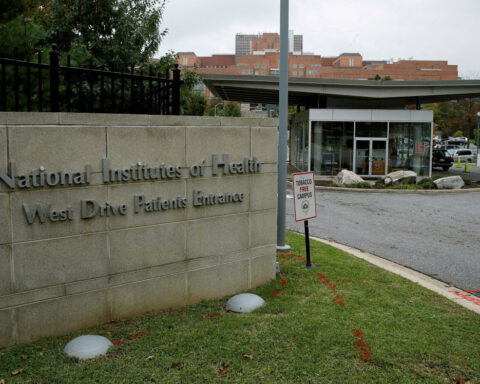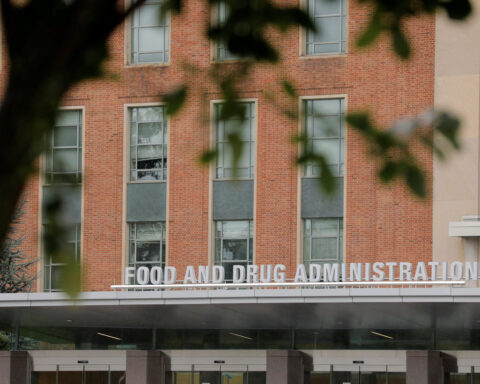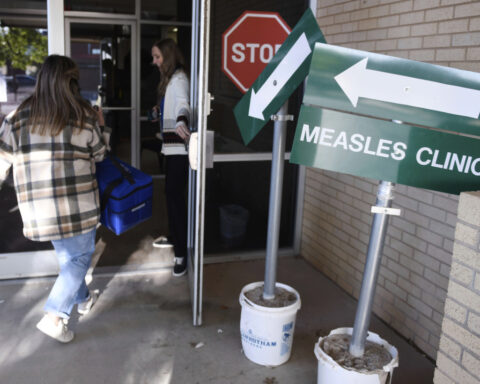A new study suggests low serotonin levels in the body could help explain some of long COVID's most troublesome symptoms, including brain fog, headaches, and fatigue. The research proposes lasting viral traces may hamper serotonin production, depriving patients of the essential chemical.
Around 30% of COVID survivors worldwide develop long COVID, suffering prolonged effects like reduced endurance, anxiety, and memory issues months or years later. Though causes remain unclear, the recent study in Cell identifies a possible biological contributor: depleted serotonin resulting from inflammation and impaired nutrient absorption.
If confirmed, the serotonin deficiency theory could pave the way for more focused treatments, offering hope to the millions struggling with lingering post-viral complications. The Penn Medicine study analyzed surveys and medical records from over 1,500 hospitalized long COVID patients, identifying commonly reported neurological and cognitive issues.
Researchers then examined blood samples from long COVID sufferers versus recovered patients and those with active infections. Long COVID patients showed distinct chemical differences, especially markedly low serotonin compared to fully recovered individuals.
Serotonin helps regulate vital functions like mood, digestion, bone health, and blood clotting. But in long COVID, viral remnants in the gut likely hinder serotonin production by inhibiting absorption of its chemical precursor.”The researchers stated that these findings offer a potential reason for the neurocognitive deficits linked to the continued presence of the virus in protracted COVID. The imbalance may trigger brain fog, memory lapses, and other debilitating effects.
Critically, even those with prior COVID infections aren't necessarily immune from long-term impacts. The study analyzed people hospitalized later in the pandemic due to Omicron variants after recovering from initial pre-Omicron illnesses. Many still exhibited serotonin deficiencies and long COVID symptoms, indicating viral strains matter less than lingering inflammation when it comes to dysregulation. Repeat infections may compound the chemical havoc.
Of course, causation remains unproven, and more research is needed to explore connections between serotonin deficiency and particular long COVID outcomes. But the findings provide scientists a promising lead in combating the mysterious syndrome.
"These results offer a potential reason for the neurocognitive symptoms linked to the continued presence of the virus in long COVID," stated Dr. Ceylan Elif Ilbay, a researcher. Though preliminary, she called the serotonin theory “highly plausible.”
While long COVID's origins stay complex, the serotonin study represents hope for therapies tailored to specific biological processes the virus disrupts.
Future research may uncover medications or nutritional strategies to increase serotonin levels in long COVID patients. Addressing chemical imbalances head-on could relieve suffering related to cognitive dysfunction and exhaustion.
Some experts even speculate common antidepressants like SSRIs that raise serotonin might improve some aspects of long COVID. But far more rigorous clinical trials are required before endorsing such off-label usage.
Holistic healing approaches like meditation, gentle exercise and healthy eating also hold promise for naturally boosting serotonin through lifestyle habits. A multifaceted treatment strategy may deliver the best results.
The challenges of managing long COVID stem largely from its variability and unknowns. Symptoms range from mild to totally disabling, and uncertainty around causes complicates treatment. But the recent serotonin study advances understanding of biological factors underlying patients' hardships. While much remains mysterious about long COVID, science is steadily piecing together the puzzle.
Patients dealing with exhaustion, brain fog and pain months or years after infection hope answers bring relief. Discoveries like the serotonin theory represent progress toward making long COVID more comprehensible and manageable.
Managing the socioeconomic impacts also matters. Long COVID has spawned disability claims, workforce attrition and treatment costs burdening individuals and systems unprepared for the syndrome's scale. An urgent public health response is critical.
Though much work lies ahead, identifying long COVID's biological basis moves medicine toward restoring wellness for millions whose lives remain upended.

 Trump has begun another trade war. Here's a timeline of how we got here
Trump has begun another trade war. Here's a timeline of how we got here
 Canada's leader laments lost friendship with US in town that sheltered stranded Americans after 9/11
Canada's leader laments lost friendship with US in town that sheltered stranded Americans after 9/11
 Chinese EV giant BYD's fourth-quarter profit leaps 73%
Chinese EV giant BYD's fourth-quarter profit leaps 73%
 You're an American in another land? Prepare to talk about the why and how of Trump 2.0
You're an American in another land? Prepare to talk about the why and how of Trump 2.0
 Chalk talk: Star power, top teams and No. 5 seeds headline the women's March Madness Sweet 16
Chalk talk: Star power, top teams and No. 5 seeds headline the women's March Madness Sweet 16
 Purdue returns to Sweet 16 with 76-62 win over McNeese in March Madness
Purdue returns to Sweet 16 with 76-62 win over McNeese in March Madness








